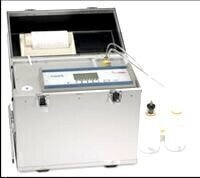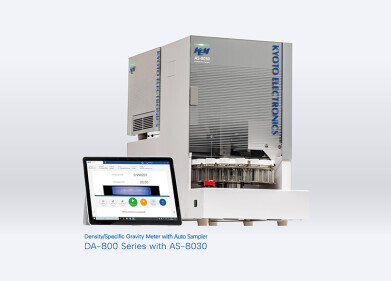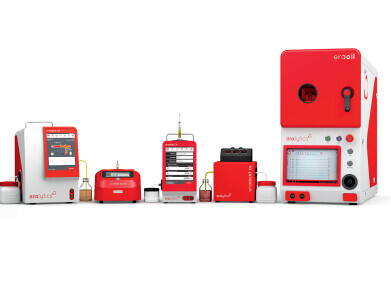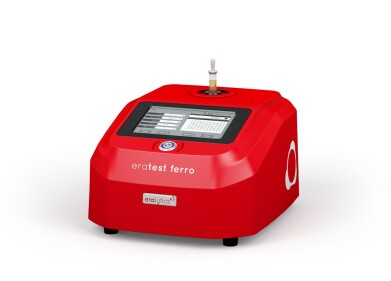Analytical Instrumentation
Def. Stan 91-91 Includes Avcount Particle Counter
Oct 16 2008
Inclusion of the new laser particle test is a result of the Aviation
industry’s ongoing efforts to enhance fuel quality and safety, increase engine reliability and reduce maintenance costs.
The inclusion of IP 565 in Revision 6 provides fuel suppliers and
engine manufacturers with a more objective, quantitative assessment of the cleanliness of aviation fuel than has previously been practical.
AvCount is an easy to use, rugged and portable instrument specifically designed for testing the particulate content of fuel and lubricants including all aviation turbine and gasoline fuels. It incorporates the latest innovative measuring technology to provide a rapid test result and a very low-maintenance test instrument. The new instrument is
designed for use in the laboratory or at relevant fuel distribution locations (ie: airport).
‘AvCount’ features a high precision laser measurement system capable of identifying particle sizes from 4 ìm to >70 ìm. The measurement sequence runs automatically, with a complete test sequence in under
4 minutes, using only 80ml of sample. Results are displayed in real time on the LCD display and printed on the integral printer. Test results saved to memory can trend sample results, or can be downloaded to a PC for further detailed analysis using Statistical Quality Control (SQC) for quality traceability.
The introduction of ‘Avcount’ now allows fuel suppliers to provide customers with a more comprehensive and reliable ‘fuel cleanliness’ report whilst significantly reducing the effort needed for testing. Maintenance personnel can more easily identify and isolate any potential problem in fuel filter and fuel tank systems, supporting reduced maintenance costs and downtime. In fact all those associated with the quality and cleanliness of aviation fuel can now benefit from a far superior means of ensuring fast and precise particulate analysis.
Digital Edition
PIN 25.1 Feb/March
March 2024
In This Edition Safety - The technology behind the ION Science Tiger XT - Safety with ammonia and LOHCs as hydrogen carriers Analytical Instrumentation - Discussion on new tribology te...
View all digital editions
Events
Apr 24 2024 Mumbai, India
Apr 24 2024 Jakarta, Indonesia
Apr 28 2024 Montreal, Quebec, Canada
Apr 30 2024 Birmingham, UK
May 03 2024 Seoul, South Korea


















